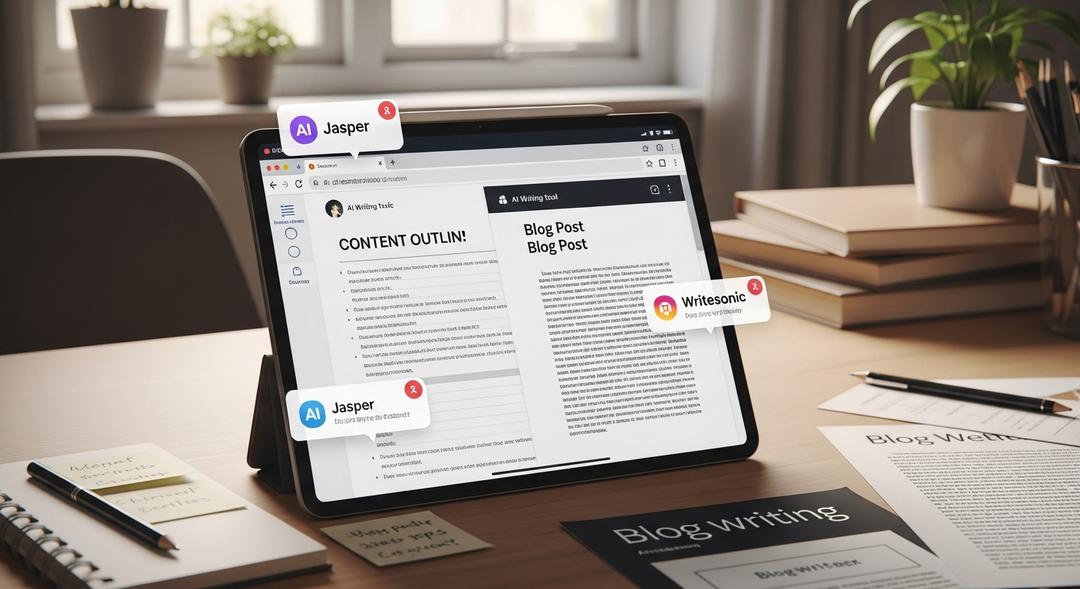Script writing technology is transforming how writers develop, refine, and finalize their stories. With the latest advancements in natural language tools, platforms for script writing now streamline the entire process—starting with idea generation and continuing all the way through to professional formatting.
Whether you are a new screenwriter or a seasoned professional, adopting script writing software can significantly boost both your creativity and productivity. Below, you will discover the essential benefits and standout features of top options available today.
What are the benefits for using Script Writing AI Tools
Script writing tools deliver multiple advantages that streamline your workflow and encourage creative growth.
- Speed up script creation by automating repetitive work and offering fresh story concepts.
- Strengthen teamwork through real-time document sharing and instant feedback.
- Consistently format scripts according to industry expectations to minimize manual errors.
1. Sudowrite
Features
- Brainstorming support for expanding character arcs, plot events, and natural dialogue.
- Scene suggestions for rewriting and extending key moments.
- Tuning for story tone and pacing across different genres.
- Narrative arc visual tools to help organize story progression.
Pros
- Breaks through creative blocks with innovative writing prompts.
- Simple and easy-to-use interface for all levels.
- Caters to both novelists and script writers effectively.
- Saves hours at both drafting and editing stages.
- Integrates with mainstream writing apps for seamless workflows.
Cons
- Subscription fees may not appeal to every budget.
- Lack of offline features reduces flexibility.
- Certain suggestions need tweaking to fit personal writing style.
Sudowrite provides a subscription model, offering both monthly and yearly rates along with a free trial for those who want to try before subscribing.
2. ScriptBook
Features
- Detailed predictive analytics for script viability and box office potential.
- Assesses script structure, narrative pacing, and how well it fits its chosen genre.
- Feedback on character development and emotional engagement.
- User-friendly reports through a feature-rich dashboard.
Pros
- Guides creators with data-supported insights for important decisions.
- Saves time with in-depth, automatic breakdowns.
- Insights help creators match scripts to target audiences.
- Easily compare performance between multiple projects.
Cons
- Offers the most benefit to studios and professionals managing larger slates.
- Scripts outside the norm may need further manual evaluation.
- Focused on script assessment rather than actual script writing.
ScriptBook pricing depends on how frequently you use the service or the number of reports you request, suiting the needs of productions and studios.
3. Final Draft
Features
- Complete script formatting automation meeting industry guidelines.
- Mapping tools for planning storylines and structuring scenes.
- Collaboration for writers and production crew members.
- Template variety for film, television, and stage writing.
Pros
- Widely respected and used in professional film and television industries.
- Intuitive interface with robust customer support.
- Efficient team collaboration options.
- Consistent software updates from an active development team.
- Cross-platform to support workflow flexibility.
Cons
- Higher cost upfront compared to other writing solutions.
- No free plan or extended trial available.
- Some enhanced features reserved for upgraded editions.
Final Draft is offered as a one-time purchase, with periodic upgrades available for major new releases.
4. Fade In
Features
- Professional screenplay formatting capabilities.
- Revision and version comparison tools for script drafts.
- Compatible with PDFs as well as Final Draft formats.
- Tools for outlining and easily navigating story elements.
Pros
- Budget friendly alternative without loss of functionality.
- Minimalist interface keeps focus on storytelling.
- Runs on all standard operating systems.
- Updates are frequent and responsive to user feedback.
Cons
- Does not include as many advanced features as higher tier platforms.
- Collaboration tools are more limited.
Fade In is available as a single purchase, with minor updates included and a free demonstration version.
5. WriterDuet
Features
- Live collaboration for writers working remotely.
- Automatic script formatting that matches industry requirements.
- File import and export with popular formats.
- Online storage and document history for easy review.
Pros
- Designed to enable smooth teamwork across locations.
- Robust outlining and beat board support for pre-production planning.
- Web access from any device connected to the internet.
- A free option available for beginners.
Cons
- Certain features available only to paid users.
- Stable internet is necessary for full functionality.
- Interface might appear complex to first time users.
WriterDuet offers a basic free plan, with premium options unlocking more features.
6. Movie Magic Screenwriter
Features
- Advanced tagging and script formatting for studio needs.
- Card-based system for outlining and arranging scenes.
- Auto-complete suggestion features for fast script writing.
- Built-in production and shooting schedule tools.
Pros
- Highly trusted by experienced writers and producers.
- Complete production management support extends beyond writing.
- Custom templates for varied storytelling needs.
- Languages supported for international use.
Cons
- Interface may feel behind compared to newer script writing programs.
- The initial purchase price can be a barrier for those just starting out.
Movie Magic Screenwriter comes with an upfront fee, and upgrades are offered as new features are released.
7. Celtx
Features
- Complete writing and production management all in one interface.
- Team collaboration enabled by cloud system.
- Templates can be chosen for film, theater, audio, and games.
- Integrated management tools for the entire project.
Pros
- Excellent for independent filmmakers and smaller teams.
- Combines writing with project planning in one place.
- Rates and plans scale according to team size or needs.
- Use across desktop and mobile devices with ease.
Cons
- Full suite of production tools limited to higher priced subscriptions.
- Offline writing tools are reduced.
Celtx uses a subscription system, with different options for those focused on writing or complete production.
8. Trelby
Features
- Zero cost open source screenwriting solution.
- Formats scripts automatically to meet standards.
- Generates scene, character, and dialogue statistics for better organization.
- Simple design for distraction free writing.
Pros
- Completely free to download and use, making it accessible to everyone.
- Focuses on core writing needs to avoid clutter.
- Runs well on Windows and Linux devices.
Cons
- Absence of robust collaboration features.
- Support options are more limited due to open source structure.
- Does not include production management component.
Trelby is always free, with no payments or additional modules needed.
9. Callaia
Features
- Automatic coverage and feedback to save writers time.
- Helps with story building through character and conflict suggestions.
- Can create outlines and brief summaries automatically.
- Provides revision history for tracking script changes.
Pros
- Instant script evaluation ensures fast turnaround times for feedback.
- Improvement suggestions benefit both beginners and advanced users.
- Platform adjusts to match your evolving workflow needs.
Cons
- Full access comes only with paid plans.
- Suggestions might need edits to fit your voice or genre.
Callaia is available as a subscription service, with options for individuals and professionals.
10. RivetAI
Features
- Automatically breaks down scripts to aid production planning.
- Analyzes story structure and pacing for improvements.
- Collaboration tools and in-app notes for team usage.
- Offers story arc suggestions and improvements for scenes.
Pros
- Makes it easy to go from script writing to production stages.
- Detailed analysis aids both writers and producers.
- Easy to navigate, even with advanced functions.
Cons
- Subscription required for full range of features.
- More valuable for teams than solo writers.
- Advanced options take some learning for beginners.
RivetAI offers scalable plans for individuals and larger groups alike.
Conclusion
Script writing technology is changing the landscape for writers, from story brainstorming all the way to production. Every solution reviewed here brings special benefits, giving writers the tools to match unique workflows and project goals.
Whether you need cloud collaboration, deep analytics, automatic formatting, or creative support, these platforms let writers focus on their stories. For those looking to increase productivity, options like AI general writing tools can further streamline the writing process, while businesses and marketers might consider specialized AI copywriting tools for their communication needs.
Selecting the right script writing software depends on your personal experience, budget, and the demands of your current and future projects. There is a solution available for every storytelling ambition, helping you bring your scripts to life more efficiently.








